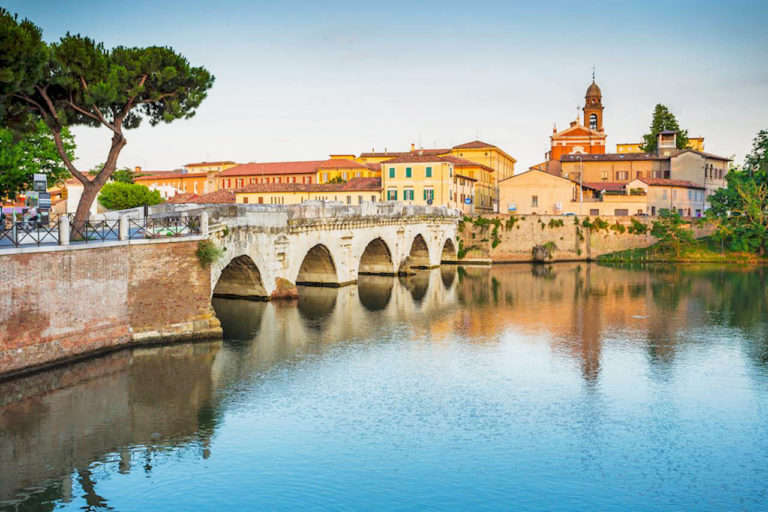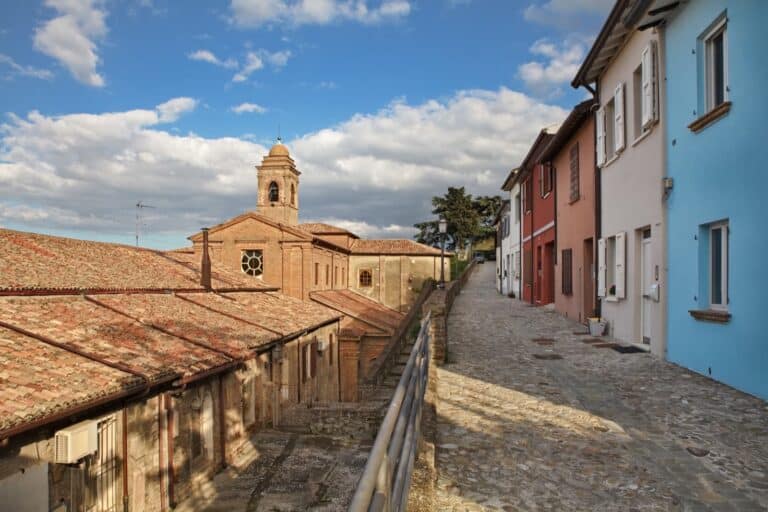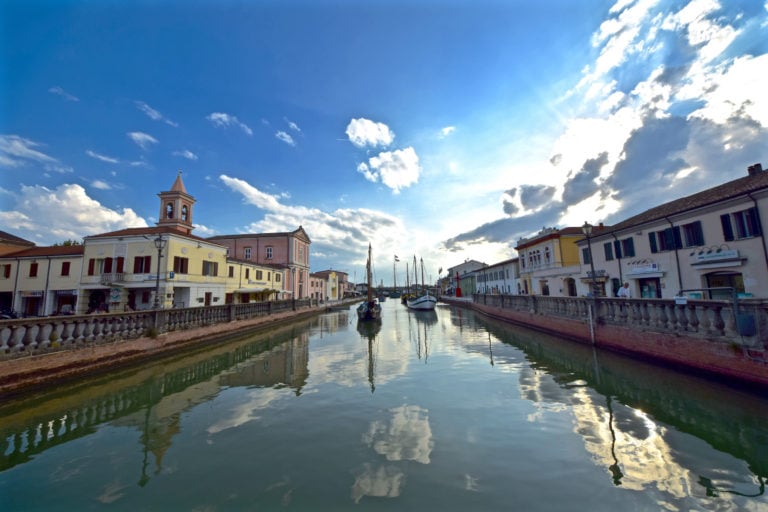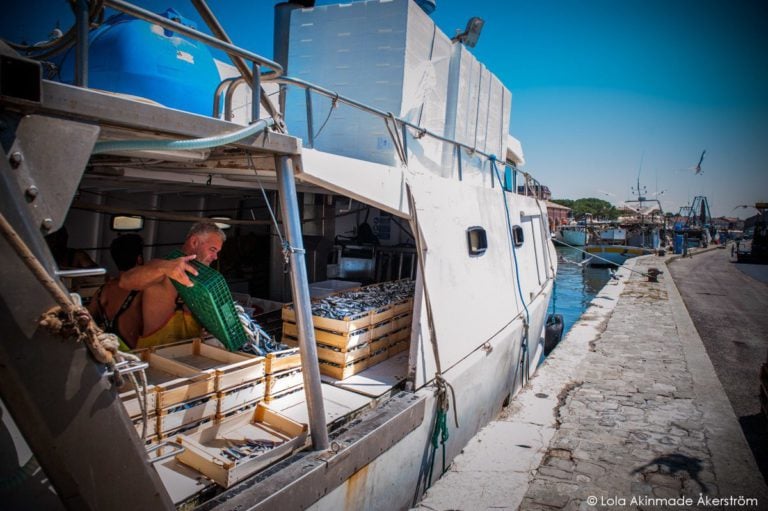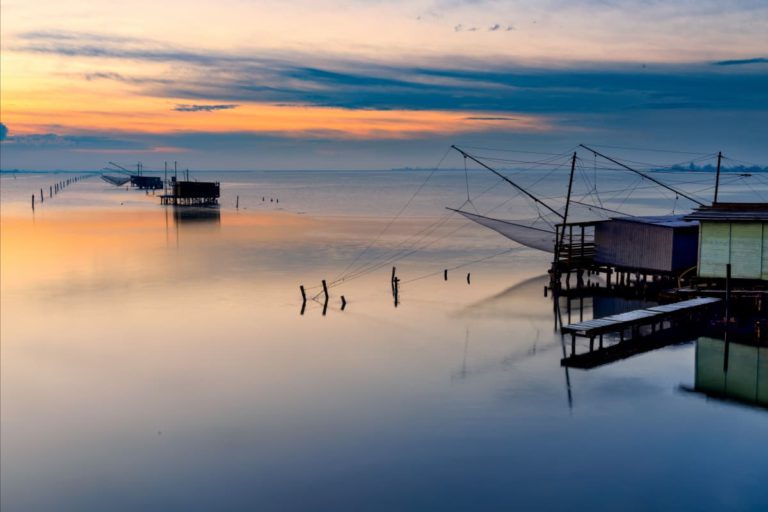
Time
72 h
Dreaming of a relaxing weekend by the sea, exploring historic fishing villages and little ports?
With Trenitalia Tper trains, it’s easy to reach some of the most picturesque towns on the Adriatic coast and experience (and taste!) the authentic seafaring tradition of Romagna!
Here’s the perfect itinerary for exploring the fishing villages along the Romagna Riviera, starting in Ravenna and stopping in Cervia, Cesenatico, Borgo San Giuliano in Rimini, and Cattolica.
Departure from Ravenna
Ravenna is the ideal city to start this summer trip along the Adriatic Coast: not only is it a city of art known throughout the world for its Byzantine mosaics, but it is also just a few minutes from the coast and the new Maritime Park.
Before you set off, take time to visit the historic centre and at least two of its famous UNESCO monuments, such as the Basilica of San Vitale and the Mausoleum of Galla Placidia, about a 15-minute walk from the station. However, the city deserves at least a full day’s visit, and we recommend following our perfect itinerary to discover Ravenna on foot in 10 stages.
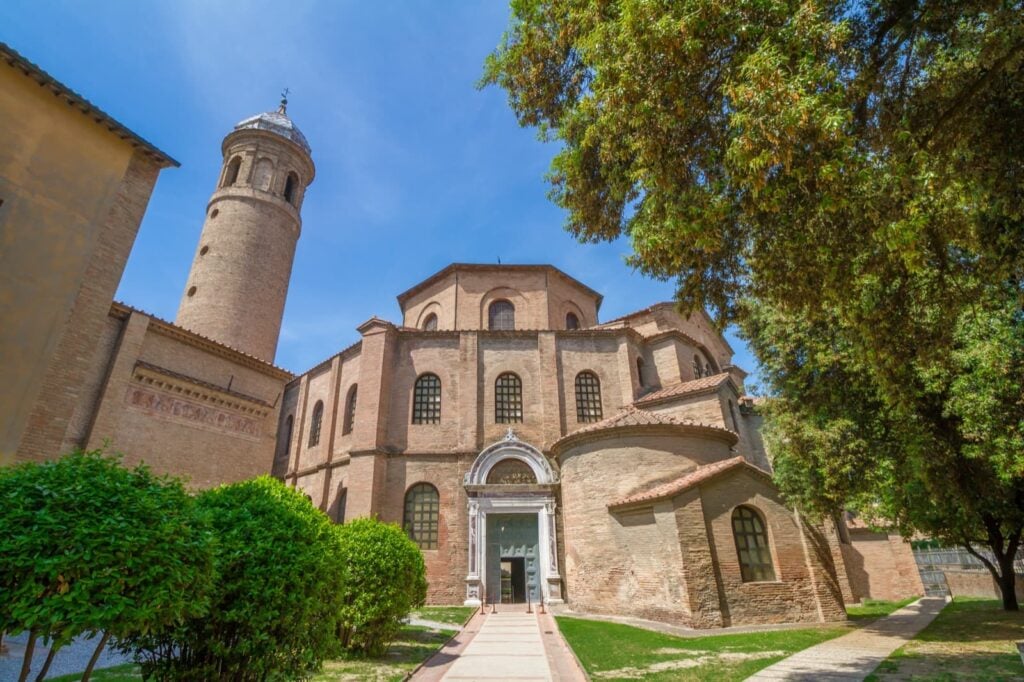
First stop: Cervia, the city of salt
The first stop on our itinerary through the seaside villages of Romagna is Cervia, which can be reached in about 20 minutes by train from Ravenna (Cervia-Milano Marittima station).
In addition to being a lively seaside town, Cervia is known for its production of sweet salt, extracted for thousands of years from its ancient salt pans, which can still be visited in various ways: on foot, by electric boat, by kayak, by bicycle and by tourist train.
It is a magical place where you can watch the salt being harvested, among wagons loaded with salt, salt workers at work and intense pink-coloured pans, and discover the southern part of the Po Delta Regional Park, inhabited by numerous species of birds, including the famous pink flamingos.
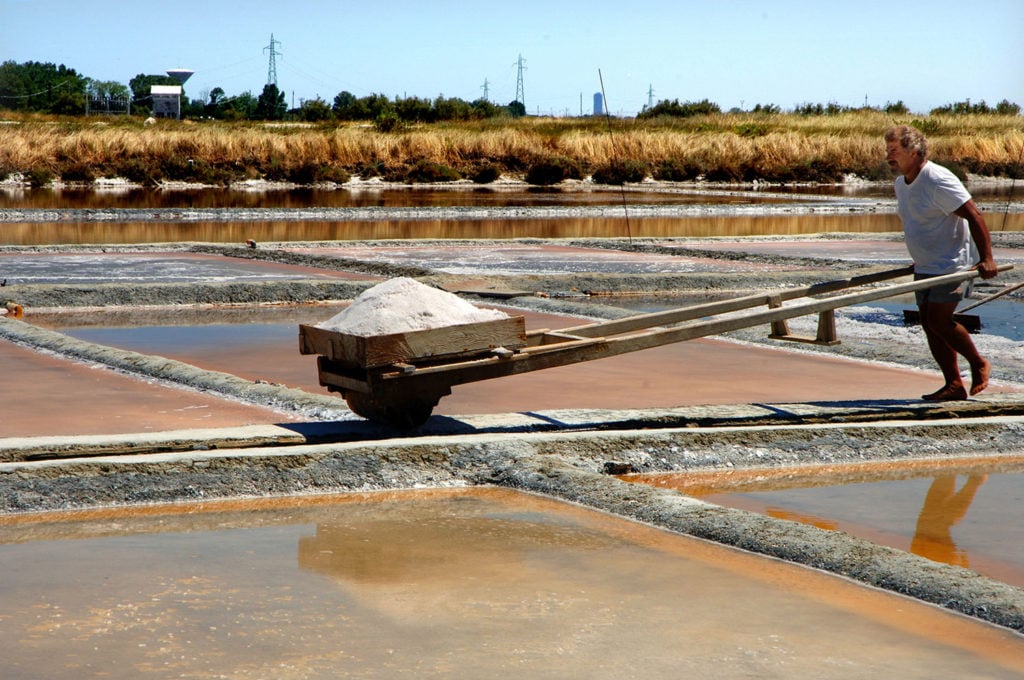
The Visitor Centre is about a 20-minute walk from the train station, while its picturesque canal port is about a 10-minute walk from the train station.
On the canal port stand several historic buildings linked to salt production and trade: these are the Magazzino del Sale Torre with the adjacent Torre San Michele and the Magazzino del Sale Darsena, built between the end of the 17th and the beginning of the 18th century for the storage and defence of Cervia salt. Today, they are extraordinary examples of industrial regeneration, used as evocative venues for exhibitions and shows.
Continuing along the canal port towards the sea, you reach Borgo Marina, with its terraced houses built around 1833 to accommodate fishermen from various areas of the Upper Adriatic.
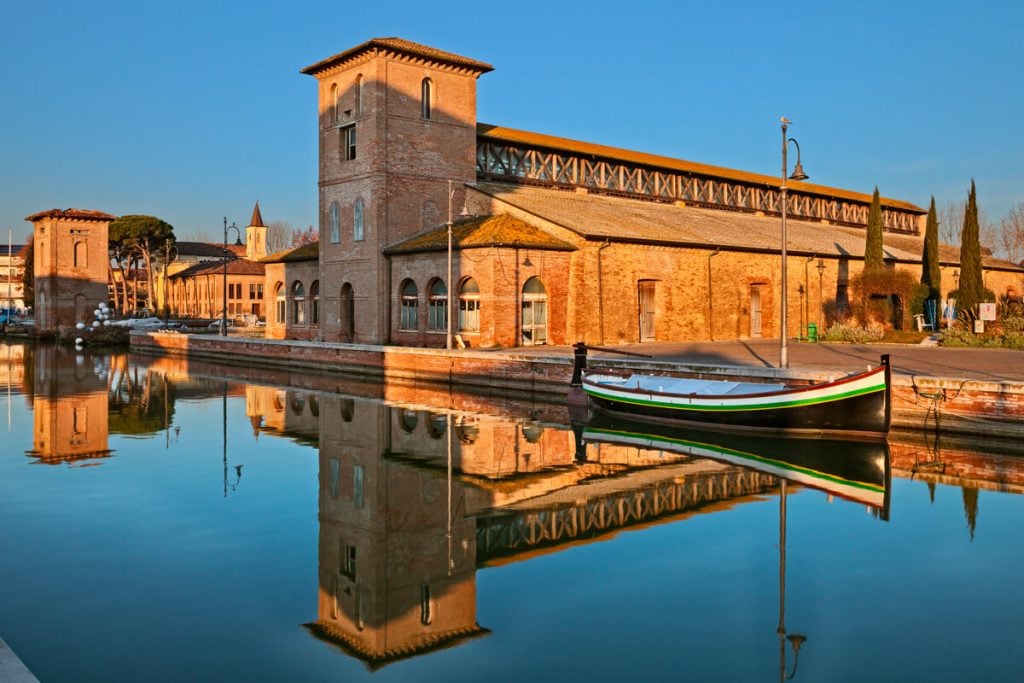
Second stop: Cesenatico, Da Vinci's canal port
Taking the train south again, in just 6 minutes you arrive in Cesenatico, a renowned seaside resort known for its canal port designed by Leonardo da Vinci, a 5-minute walk from the train station.
Along the canal port, ancient sailing boats with colourful sails are moored all year round, forming part of the open-air floating section of the Maritime Museum.
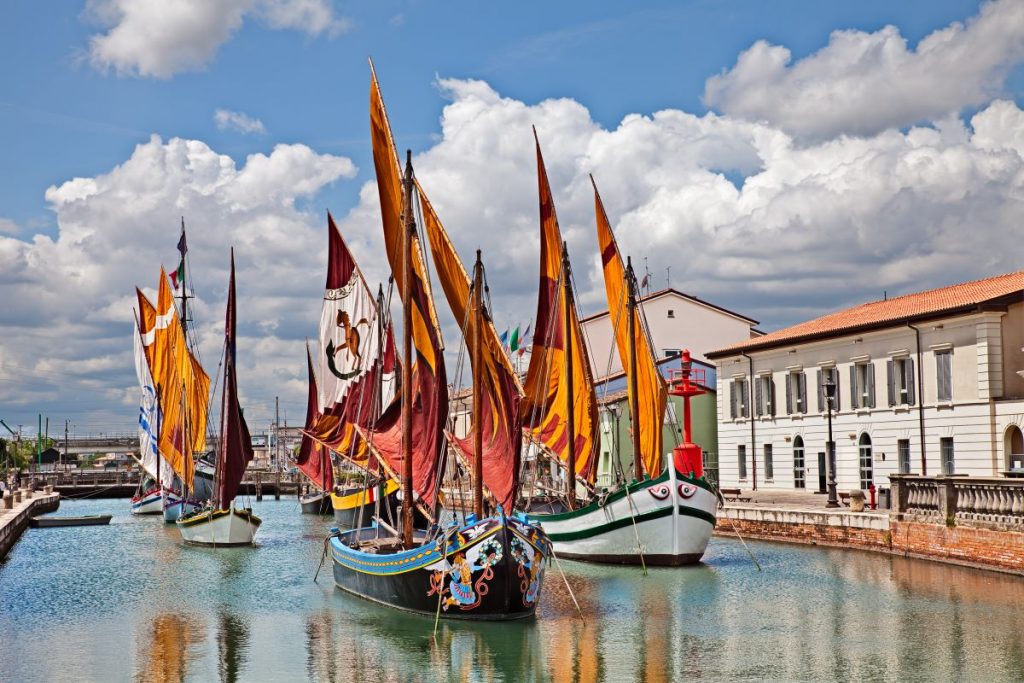
The lively atmosphere of this ancient seaside village engages all the senses: from the mouth-watering aromas coming from the typical seafood restaurants, to the pastel colours of the little squares (such as Piazza delle Conserve), to the sounds of the sea that can be heard while strolling along the pier, among the fishing huts.
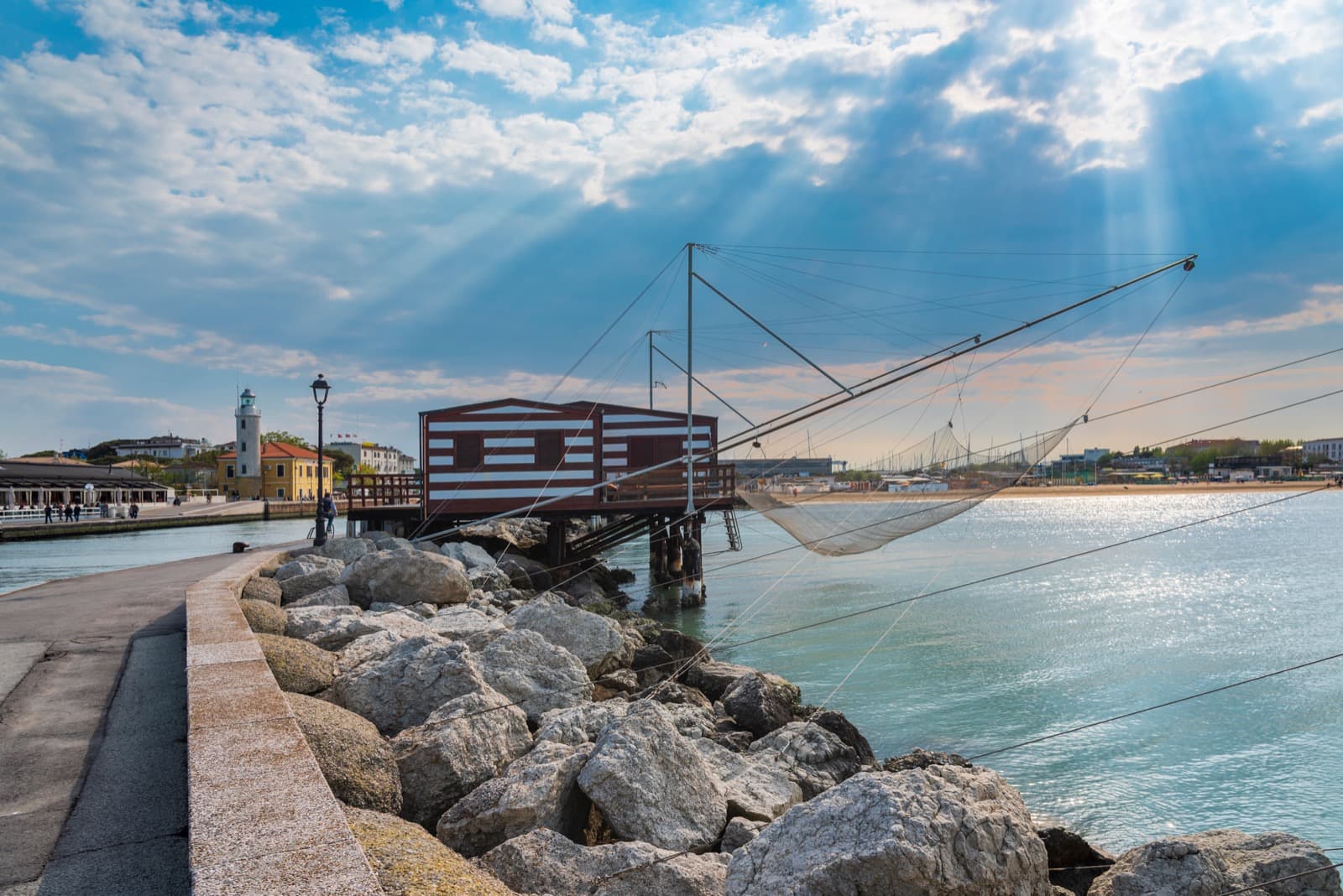
Third stop: Rimini, Borgo San Giuliano
Continuing by train, in about half an hour you will reach Rimini, the most famous seaside resort on the Romagna Riviera.
Perhaps not everyone knows that Rimini also has a lively historic centre with important monuments from the Roman and Renaissance periods (discover our perfect itinerary for exploring Rimini on foot in 10 stages).
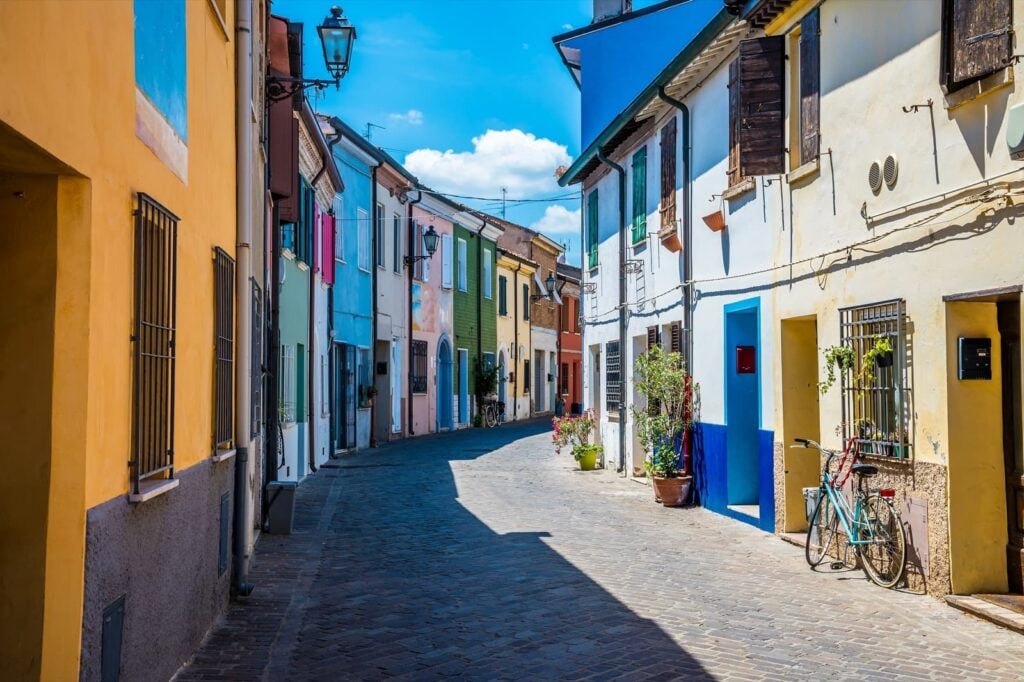
However, the most charming part of Rimini (about a 15-minute walk from the train station) is Borgo San Giuliano, the old fishermen’s village beloved by Fellini.
With its murals, picturesque alleys, colourful houses and traditional taverns, the village offers photogenic views and an intimate, authentic atmosphere.
Before leaving, don’t miss a stroll near the nearby Tiberius Bridge and the scenic Piazza sull’Acqua (Square on the Water).
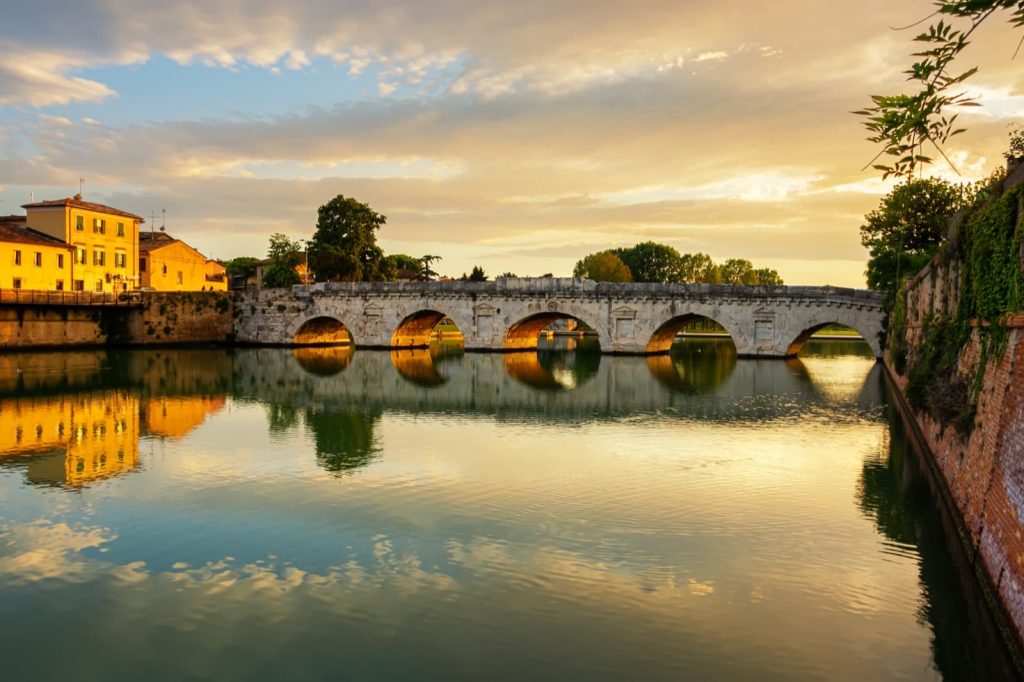
Fourth stop: Cattolica, the queen of the Adriatic
In about 15 minutes by train, you will finally reach our last stop: Cattolica, the Queen of the Adriatic, the southernmost seaside resort on the Adriatic Riviera, just a few kilometres from the hills of the Marche region.
In addition to its sandy beaches, Cattolica has a charming old town, a pretty harbour and a fish market that bear witness to its seafaring tradition, a tradition that is now preserved and well documented in the Museo della Regina (Queen’s Museum).
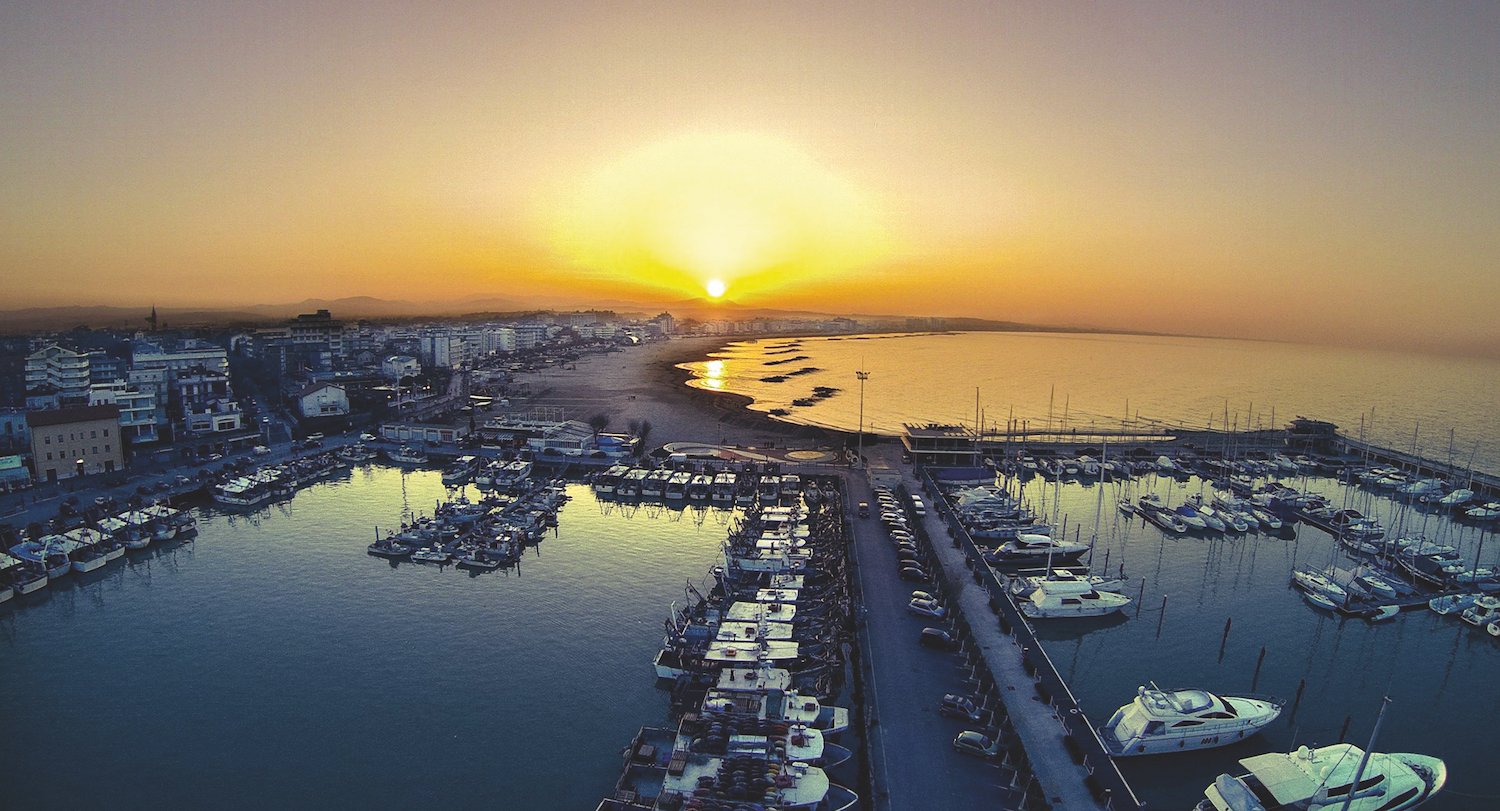
After a weekend spent exploring the seaside villages, you can return comfortably by train to Ravenna, or continue your journey home. Either way, you will take with you the salty sea breeze and memories of a corner of Romagna with timeless charm.
Author
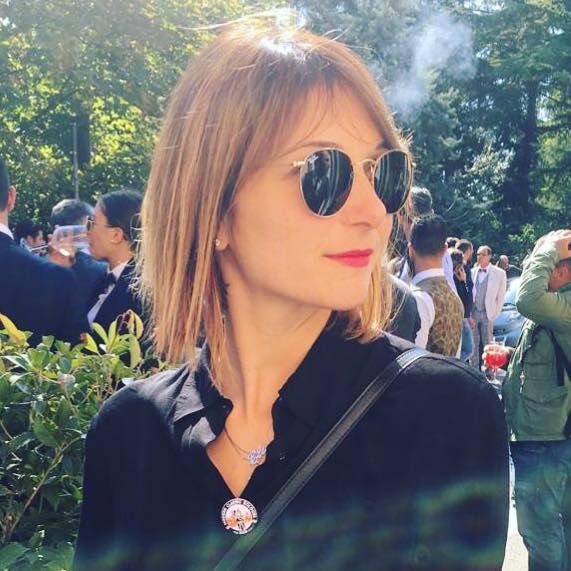
Elisa Mazzini
Social Media Manager for @inEmiliaRomagna and full-time mom.
You may also like
Stress-free holidays. Travelling to Emilia Romagna by train
by Maria Grazia Masotti /// March 28, 2025
The Coastal Towns of Emilia-Romagna
by Walter Manni /// July 27, 2018

Interested in our newsletter?
Every first of the month, an email (in Italian) with selected contents and upcoming events.
